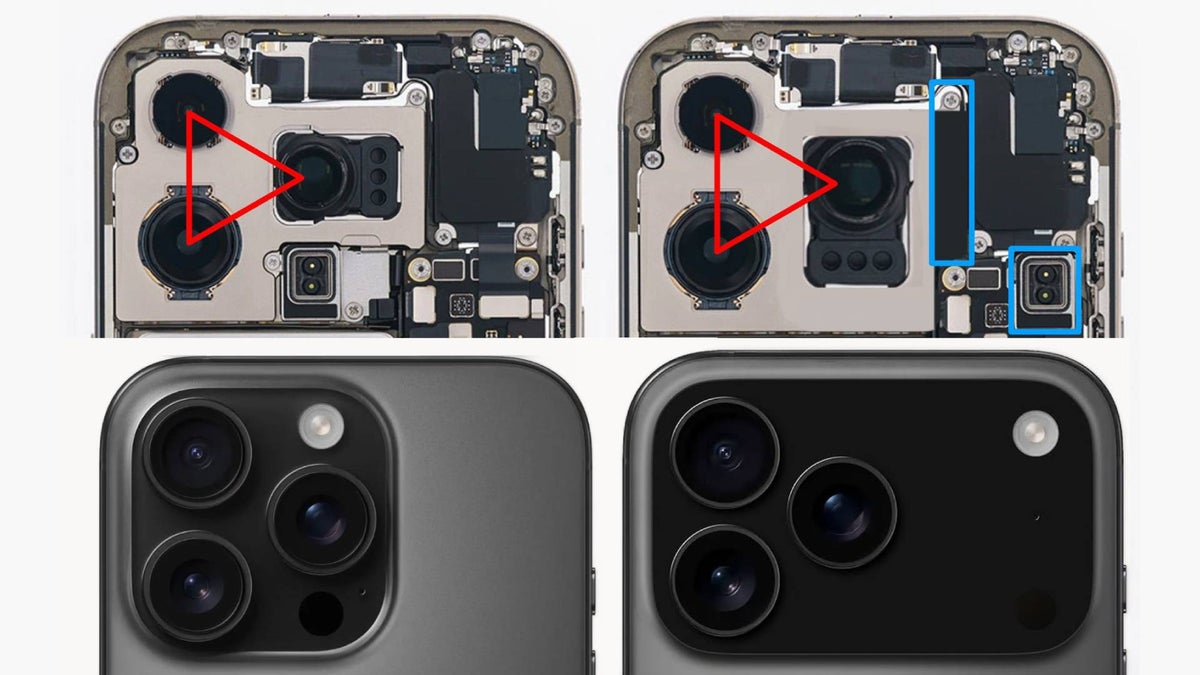The Supreme Court put TikTok imminently out of business in the US—at least temporarily—by upholding a law that will ban US app stores and hosting providers from providing services to the ByteDance-owned social platform starting Sunday.
The court’s justices agreed in the 20-page opinion that the Protecting Americans from Foreign Adversary Controlled Applications Act’s provisions targeting TikTok do not infringe on the First Amendment because they are “content-neutral” by virtue of addressing who owns a speech platform, not what’s said on it.
“They impose TikTok-specific prohibitions due to a foreign adversary’s control over the platform and make divestiture a prerequisite for the platform’s continued operation in the United States,” the opinion reads. “They do not target particular speech based upon its content.”
The justices found the government’s concerns over potential privacy abuses at TikTok persuasive, especially if users oblige the TikTok app’s requests for contacts and calendar data.
“Data collection and analysis is a common practice in this digital age,” the opinion reads. “But TikTok’s scale and susceptibility to foreign adversary control, together with the vast swaths of sensitive data the platform collects, justify differential treatment to address the Government’s national security concerns.”
The opinion, issued on an unsigned per curiam basis, does not address government concerns over how the People’s Republic of China could leverage its authority over ByteDance to manipulate content covertly in ways that the PRC prioritizes.
Justices Sonia Sotomayor and Neil M. Gorsuch wrote brief concurring opinions.
Sotomayor partially disagreed with the opinion in a three-paragraph concurrence, writing that TikTok’s “expressive activity” in choosing what users see as well as TikTok creators’ “right to associate” with the publisher of their choice were both entitled to First Amendment protection.
Gorsuch complimented his fellow justices in a longer concurrence for setting aside the US government’s covert manipulation arguments and classified evidence submitted in the case. While wondering if the law in contention might not be as content-neutral as his colleagues held it to be, he concluded that the PRC’s ability to order around TikTok mattered more.
“Speaking with and in favor of a foreign adversary is one thing,” Gorsuch wrote. “Allowing a foreign adversary to spy on Americans is another.”
Over the next 48 hours, TikTok’s fate technically rests with President Biden, though the White House has said he won’t enforce the ban come Sunday, punting the decision to the incoming Trump administration. Trump has repeatedly pledged to “save” TikTok by unspecified means, even though he started this whole thing with a 2020 executive order.
On Truth Social today, Trump said: “The Supreme Court decision was expected, and everyone must respect it. My decision on TikTok will be made in the not too distant future, but I must have time to review the situation. Stay tuned!”
In a Friday statement, TikTok CEO Shou Zi Chew suggested Trump will save the app.
“I want to thank President Trump for his commitment to work with us to find a solution that keeps TikTok available in the United States,” he said in a video message. “This is a strong stand for the First Amendment and against arbitrary censorship.
“We are grateful and pleased to have the support of a president who truly understands our platform. One who has used TikTok to express his own thoughts and perspectives, connecting with the world and generating more than 60 billion views of his content in the process.”
This Tweet is currently unavailable. It might be loading or has been removed.
A Five-Year Battle
The argument over whether TikTok poses a meaningful privacy or security threat and what the US government should do about it has been stewing for years. President Trump sought to ban the platform in August 2020, along with the Chinese all-purpose messaging app WeChat, but lost multiple court challenges.
On the privacy front, opponents have pointed to past episodes of TikTok violating its users’ privacy, such as when since-fired employees spied on journalists reporting on the company in 2022. They have also argued that there’s no room to trust TikTok given that its owners must answer to the Chinese Communist Party, which has a demonstrated fondness for harvesting data on its own citizens and, via extensive state-sponsored hacking, US residents.
(PRC front companies could also just buy details about Americans from data brokers; even privacy experts struggle to keep their info out of those databases. But Congress has spent years failing to pass a comprehensive privacy bill or even one targeting data brokers specifically.)
(Credit: Andrew Harnik/Getty Images)
The argument over TikTok’s potential to be abused as a CCP propaganda channel has been even more hypothetical since so much of its recommendation algorithm remains a mystery. Meanwhile, the Trump campaign found its potential as a political marketing tool powerful enough to join the platform last summer. More recently, Meta’s decision to fire its fact-checkers and welcome political content on Facebook and Instagram has put out a welcome mat for disinformation merchants.
TikTok itself attempted to address these concerns with a “Project Texas” plan to put its US operations behind a technological and legal firewall. This proposal also would have given the US government unprecedented kill-switch authority over the platform, but the White House eventually declined that as unworkable.
This Supreme Court case kicked off this spring when Congress passed the Protecting Americans from Foreign Adversary Controlled Applications Act, which President Biden signed into law as part of a supplemental-spending bill (PDF).
That statute prohibits US app stores and online hosting services from transacting with TikTok, other platforms owned by its Beijing-based parent firm ByteDance, and any other platform under the control of a “foreign adversary” and deemed harmful to national security by the president.
Recommended by Our Editors
The law put those provisions in force 270 days after its passage, which turned out to be Jan. 19, unless ByteDance divests TikTok to a US buyer. It also allows the president to give TikTok a 90-day deadline extension if he sees such a divestiture moving along.
In December, a three-judge panel of the Court of Appeals for the District of Columbia Circuit upheld the law, finding the government’s arguments of possible data-collection and propaganda-dissemination risks sufficiently plausible to outweigh First Amendment concerns and other arguments cited by TikTok and its fellow plaintiffs.
TikTok appealed that—drawing support from Trump’s lawyers who asked the court to pause the ban—but has now lost for the last time in US courts.
‘Policymakers Are Missing the Larger Issue’
The court’s opinion reads as tightly focused on the particulars of TikTok’s case–an application used by more than 170 million Americans and owned by a company subject to an authoritarian regime with a history of snooping on Americans. But many reactions to it instead looked at not just the imminent effects on TikTok users but at what other ripples might come from the rock the justices just tossed into the tech-policy pond.
“The Court did go out of its way to try to make its decision narrow, but it’s still going to make a mess,” emailed Cathy Gellis, a lawyer in Sausalito, Calif., who filed an amicus brief supporting TikTok and watched the court’s deliberations in person last week. “And not just a jurisprudential mess but a political mess, which we can see just in how both the Biden and Trump administrations are already expressing regret for it.”
Gellis also warned that by latching on to a content-neutral rationale for the TikTok forced-sale law, the court may have generated a template for other elected officials looking to clamp down on social platforms: “All they need is a ‘national security’ pretext, or potentially some other seemingly exigent excuse, and then let their law go into effect so quickly that it will be able to escape careful review by the courts.”
The New America think tank’s Open Technology Institute, meanwhile, raised concerns about the opinion’s overseas effects. OTI head Lilian Coral suggested it “could embolden governments beyond China and Russia to take similar stances and ban American applications and services.”
Another Washington think tank, the Information Technology and Innovation Foundation, also looked at international side effects in a statement from VP Daniel Castro.
“By singling out one app, policymakers are missing the larger issue: A digital ecosystem where Chinese-owned apps operate freely in the United States, even as American apps are systematically blocked in China,” he wrote. “While it is possible to mitigate security threats from individual Chinese-owned apps on a case-by-case basis, the US urgently needs a coherent economic policy to address the deeper imbalance in digital market access.”
Blake Reid, a professor at University of Colorado Law School, said in an email that he shares concerns about the opinion emboldening legislators to go after online forums by finding content-neutral pretexts. But, he added, the circumstances here may not have left the court any other way out: “I think this case presented the Court with a mess, and the decision is inherently messy as a result.”
Get Our Best Stories!
This newsletter may contain advertising, deals, or affiliate links.
By clicking the button, you confirm you are 16+ and agree to our
Terms of Use and
Privacy Policy.
You may unsubscribe from the newsletters at any time.

About Rob Pegoraro
Contributor





/cdn.vox-cdn.com/uploads/chorus_asset/file/25835669/att_air.jpg)






